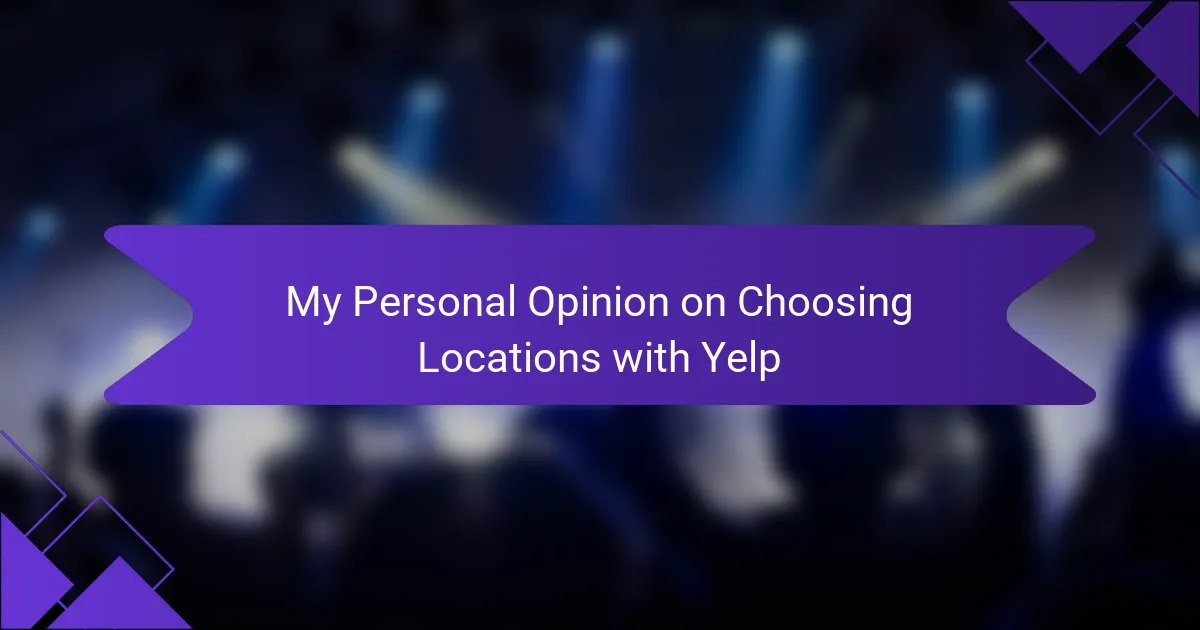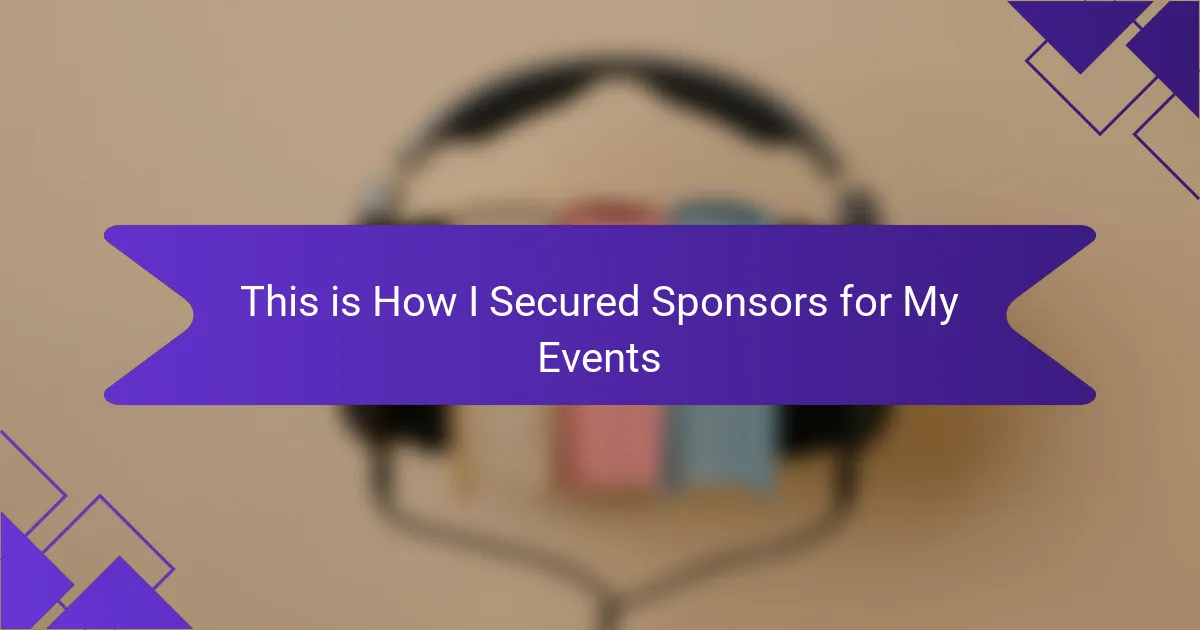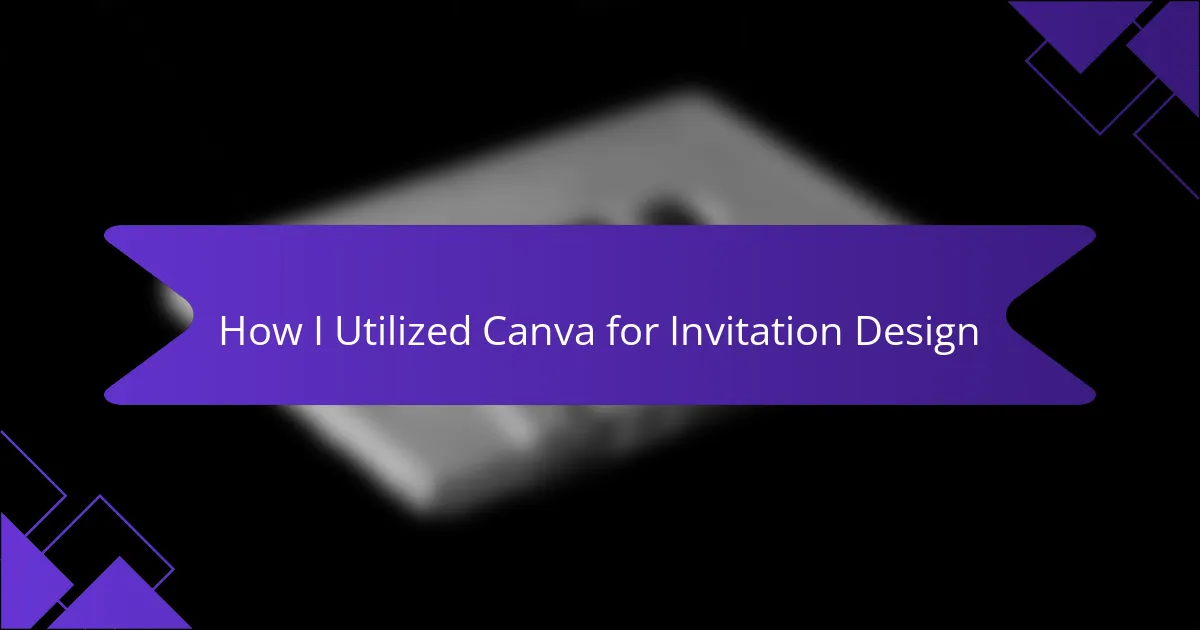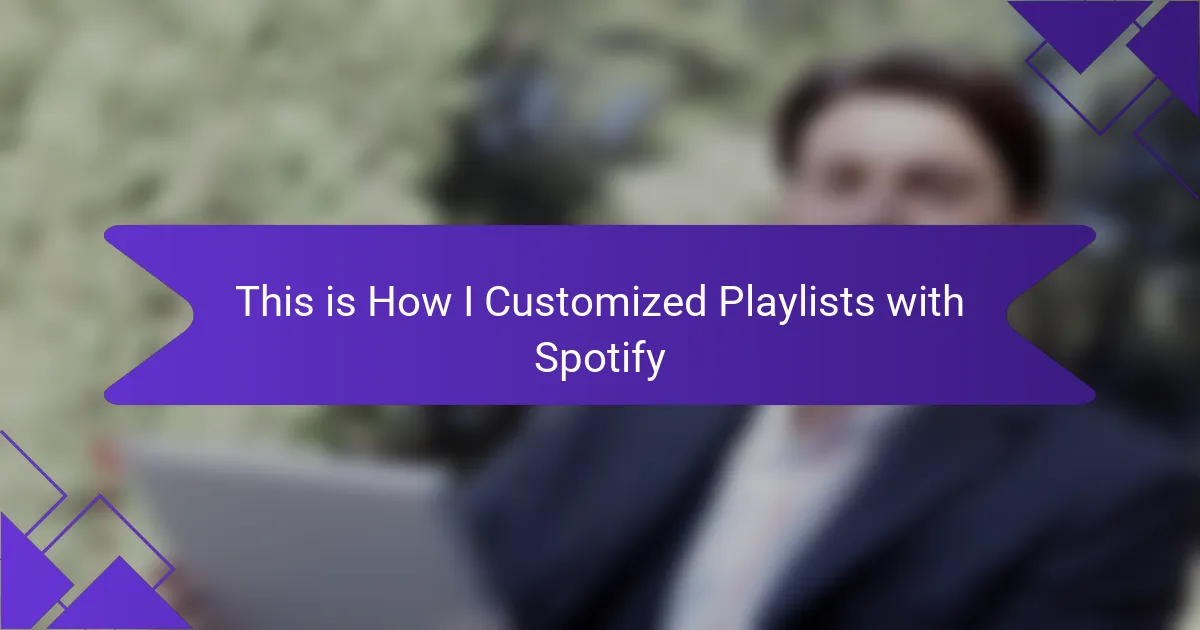Key takeaways
- Engaging guests through music and interaction creates memorable experiences and strengthens community ties.
- Gathering guest feedback is essential for understanding preferences, improving performances, and tailoring future events.
- Using tools like SurveyMonkey facilitates collecting valuable insights, allowing DJs to adapt their playlists and engagement strategies effectively.
- Implementing feedback demonstrates responsiveness, fostering a deeper connection and investment from guests in the DJ experience.
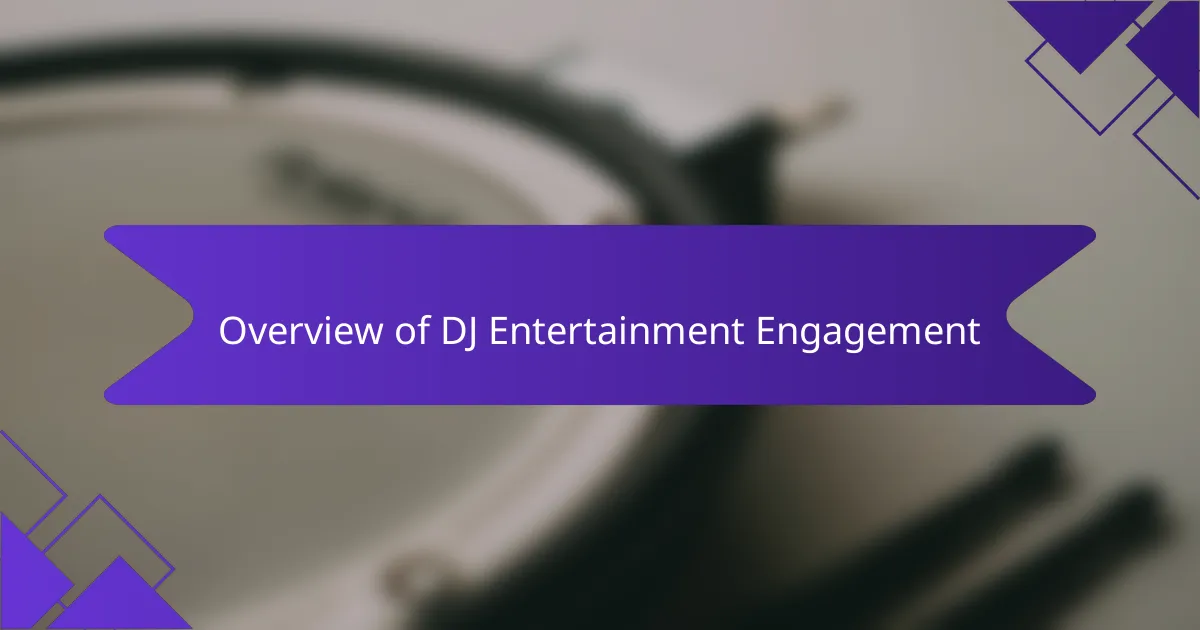
Overview of DJ Entertainment Engagement
Engaging guests in DJ entertainment is all about creating memorable experiences. I remember my first event, the dance floor lit up with smiles as people connected through music. It made me realize how vital it is to know your audience; their preferences shape the vibe of the night.
Understanding the emotions of your guests can turn a good performance into an unforgettable night. Have you ever noticed how a specific song can evoke powerful feelings? I often use surveys to gauge what my audience is looking for, ensuring I play the tracks that resonate with them, and it’s amazing to see how that fosters a sense of community.
The key to successful DJ engagement lies in the interaction between the performer and the crowd. I’ve found that asking guests for song requests or feedback during the event makes them feel involved. This approach not only elevates the energy but also strengthens the connection between the DJ and the audience, making both sides feel heard and appreciated.
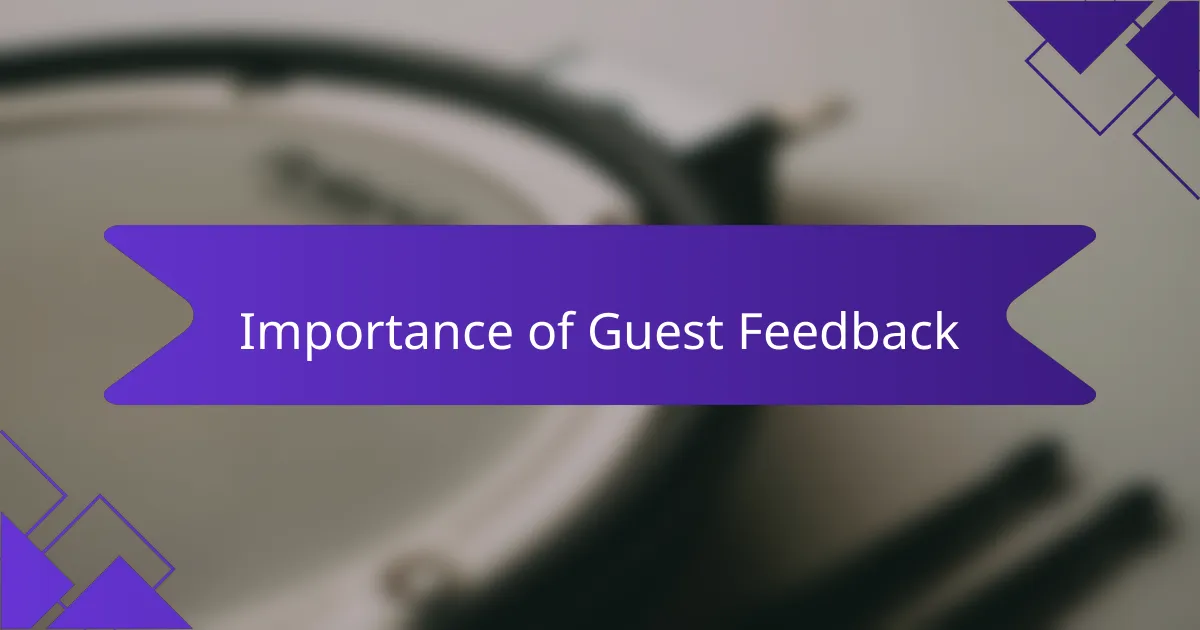
Importance of Guest Feedback
Understanding the importance of guest feedback is crucial in the DJ entertainment industry. Personally, I’ve seen how valuable it is to hear directly from guests after an event. When I took the time to gather feedback, I was pleasantly surprised by how many guests appreciated specific song choices or the overall atmosphere I created. It’s those little insights that help me refine my craft and deliver even better experiences.
Moreover, feedback can unveil underlying trends or preferences among my audience that I might not have noticed otherwise. For instance, one evening, guests commented that they loved a certain throwback genre, which inspired me to incorporate more of those tracks in future sets. It’s amazing how this dialogue can shape one’s DJing style and directly enhance guest satisfaction.
- Provides insight into guest preferences
- Helps identify areas for improvement
- Strengthens the relationship between the DJ and the audience
- Enhances the overall experience by tailoring services
- Allows for creativity based on guests’ interests
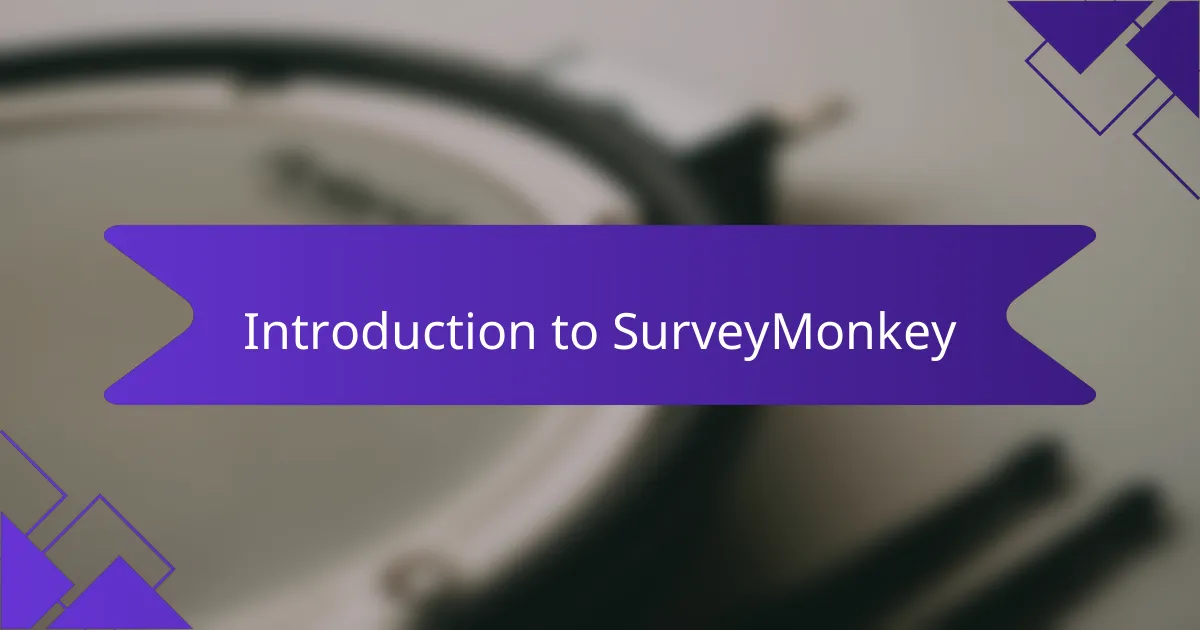
Introduction to SurveyMonkey
Using SurveyMonkey has been a game-changer in how I engage my DJ entertainment guests. This tool allows for easy creation and distribution of surveys, enabling me to gather valuable feedback that directly impacts my services. I’ve discovered that when guests feel their opinions are valued, they are more likely to connect with the experience I provide.
In my experience, the intuitive interface of SurveyMonkey simplifies the survey-making process, allowing me to focus on crafting questions that truly resonate with my audience. I remember the first time I used it; the data I collected helped me tailor my playlist to better suit the crowd, and the positive response was overwhelmingly encouraging!
Here’s a quick comparison table to highlight some key features of SurveyMonkey that I find particularly useful:
| Feature | Benefit |
|---|---|
| Customizable Templates | Saves time and guides question design |
| Real-time Analytics | Immediate feedback for quick adjustments |
| User-friendly Interface | Ease of use encourages more guest participation |
| Multi-platform Accessibility | Guests can respond on their preferred device |
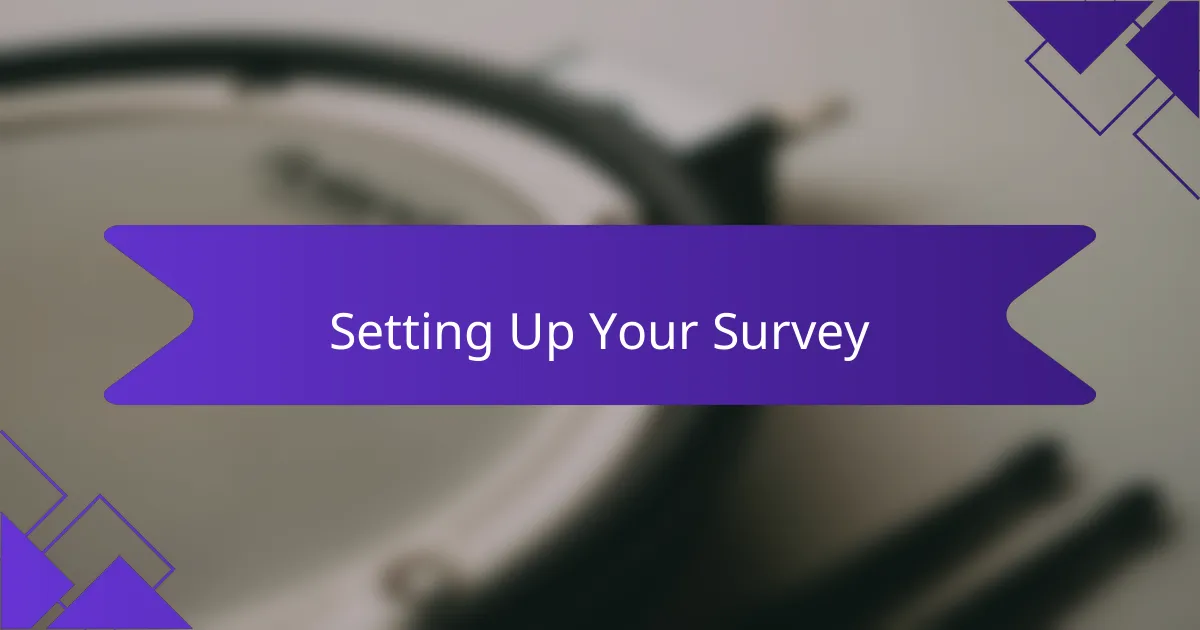
Setting Up Your Survey
When setting up your survey, I recommend starting with clear and concise questions that directly relate to your DJ services. For instance, I once asked guests about their music preferences, which led to a better understanding of the crowd’s vibe. This approach not only helped me tailor my playlists but also made guests feel valued, knowing their opinions mattered.
Here are some tips to keep in mind when designing your survey:
– Keep it short and focused to encourage responses.
– Use a mix of multiple-choice questions and open-ended ones for richer feedback.
– Consider adding a fun question, such as their dream song for a party, to lighten the mood.
– Ensure the survey is mobile-friendly, as many guests may prefer to respond on their smartphones.
– Always thank your respondents and, if possible, share insights gained from the survey to create transparency and trust.
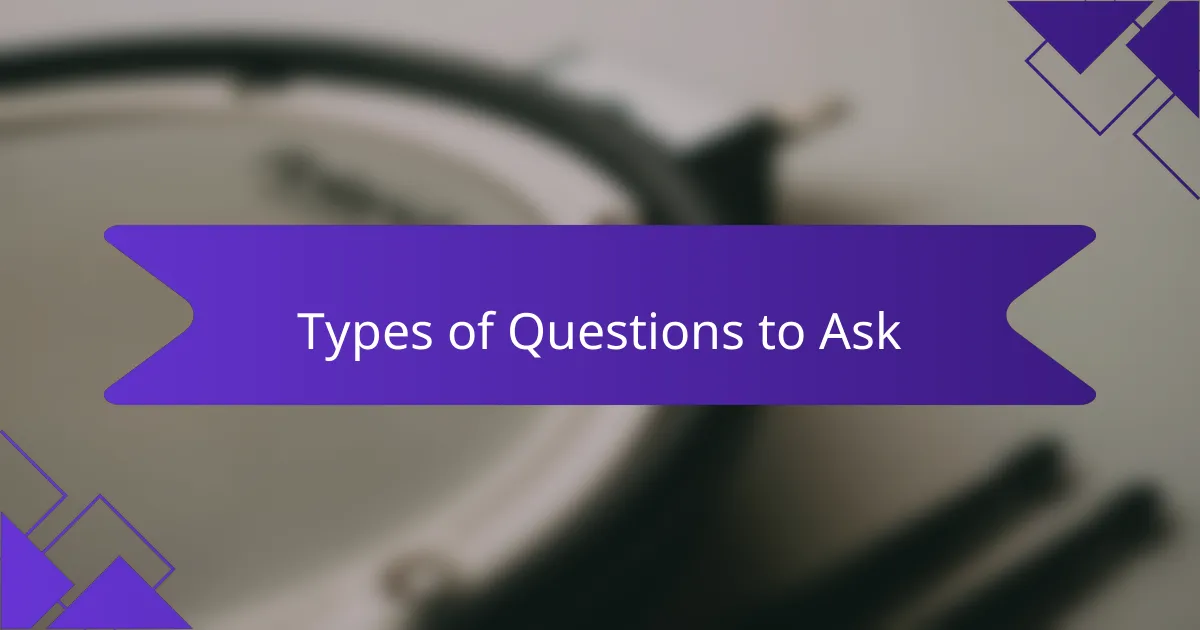
Types of Questions to Ask
When it comes to engaging guests using SurveyMonkey, the type of questions you ask can greatly affect the quality of responses you get. I’ve always found that open-ended questions invite creativity and can reveal unexpected insights. For instance, during a recent wedding I DJed, I asked guests what songs made them feel most nostalgic. The responses were heartfelt and gave me a chance to connect with the crowd on a deeper level.
In contrast, closed-ended questions are great for gathering quick, quantifiable data. They help you measure preferences and satisfaction easily, allowing you to adjust your approach on the spot. I once realized the power of this when I sent a quick survey after an event. Simple yes/no questions about song selection gave me clarity on what worked and what didn’t.
Here are some types of questions that can maximize engagement:
- Open-ended questions: “What was your favorite moment of the event?”
- Rating scale: “On a scale of 1-10, how would you rate my performance?”
- Multiple choice: “Which genre of music would you like to hear more of?”
- Yes/No questions: “Did you enjoy the playlist provided?”
- Demographic questions: “How old are you?” (to tailor future events)
Using these question types can enhance the way you interact with guests and create unforgettable experiences.

Analyzing Survey Results
Analyzing the results of your surveys can truly illuminate the preferences of your audience. I remember reviewing the data from a recent event and noticing a trend: the high ratings for upbeat dance tracks surprised me. It made me realize that people came not just to enjoy music but to celebrate and disconnect from their daily routines. Knowing this helps me create a more vibrant atmosphere tailored to their desires.
While delving into the specific comments can be enlightening, I also pay close attention to the numerical scores. For instance, when I saw a dip in ratings for a particular segment of my set, it triggered a moment of reflection for me. Did I stray too far from the crowd’s energy? These metrics guide my decisions on future playlists, ensuring I adapt and evolve as an entertainer.
It’s fascinating how analyzing survey results isn’t just about numbers; it’s about connecting to stories. Each response tells a story about a guest’s experience that night. Have you ever felt that warmth when a song played, bringing back memories? I strive to tap into those emotional connections, and feedback from surveys gives me insight into which stories resonate the most.
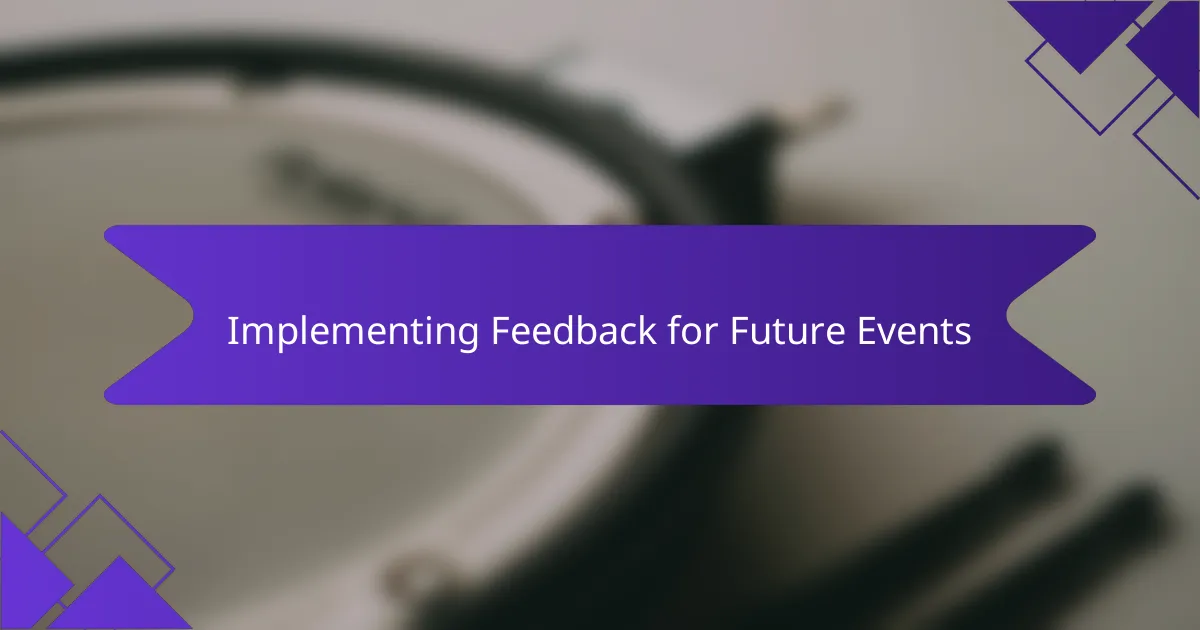
Implementing Feedback for Future Events
Implementing feedback from guests for future events has proven invaluable in my experience. I often review the comments from surveys to understand which elements resonated with them the most. One time, a guest emphasized how much they appreciated a specific remix I played. That insight inspired me to incorporate more remixes into future gigs, leading to an even livelier dance floor.
I’ve also discovered that feedback can highlight areas where I can improve. For example, after an event where I received a few suggestions about lighting, I decided to experiment with new effects in my next performance. The transformation was astounding! It reinforced my belief that being receptive to feedback isn’t just about listening; it’s about adapting to create a more enjoyable experience for everyone.
Another important lesson I learned was the value in continuous engagement. After implementing suggestions, I love to update guests about changes based on their feedback. This creates a sense of community and investment in the experience. Have you ever felt a deeper connection to an event knowing your voice was heard? I strive to foster that feeling at every show, ensuring that every guest knows they play a crucial role in shaping the moments we share.
